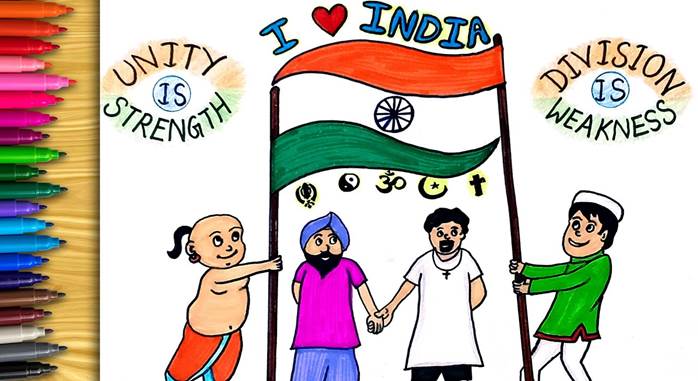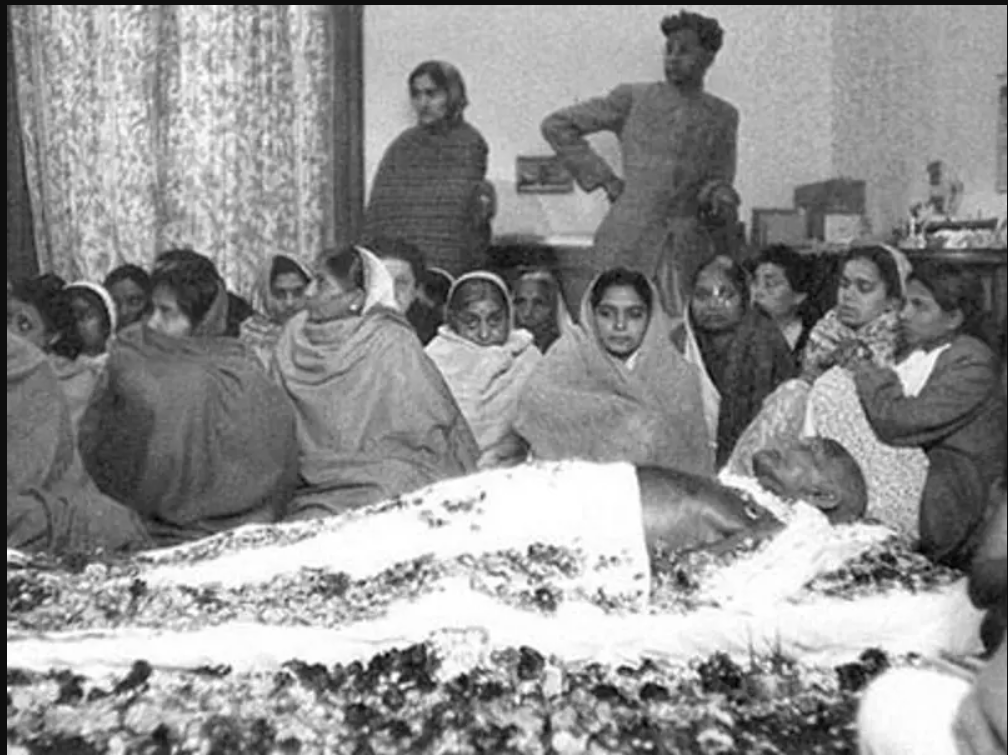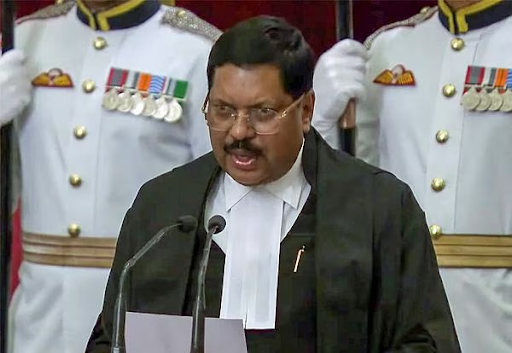Description

Copyright infringement not intended
Context - The recent incident of the beheading of a man in Rajasthan’s Udaipur has resulted in increasing communal tension/violence in several parts of India.
Communal Hatred/Violence
- It is the result of an attitude that Sees one’s group as the only legitimate group, with other groups being seen as inferior, illegitimate and opposed.
- It is generally related to religion, but there is no relationship between faith/religion and Communalism.
- A Communalist may or may not be a religious person, and Religious believers may or may not be Communalists.
- The key factor is the attitude towards those who believe in other kinds of identities, including other religion-based identities.
- One of the features of Communalism is its Claim that religious identity overrides everything else. Whether one is poor or rich, whatever one’s occupation, Caste or Political beliefs, it is religion alone that Counts. All Hindus are the same as are all Muslims, Sikhs and So on.
- This rules out the Possibility that Hindus, Muslims and Christians who belong to Kerala, for example, may have as much or more in common with each other than with their Co-religionists from Kashmir, Gujarat or Nagaland.
- Landless agricultural labourers may have a lot in common even if they belong to different religions and regions.
- The core Ideology is that people who follow the same religion have Common Interestse. they have the Same Political, Economic and Social interests.
- In a multi-religious society like India, these Common interests of one religion are dissimilar and divergent from the Interests of the follower of another religion.
- Communalism is an ideology on which Communal Politics is based.
- Communal violence is the result of Communal ideology.
Evolution of Communalism in Indian Society
- Ancient India was united and no Such Communal feelings were there. People lived peacefully together, People respect each other’s culture and tradition.
- Ex; Ashoka followed religious tolerance and focussed mainly on Dhamma, he never imposed his faith on the masses.
- Akbar during the Medieval Period presented a real model of Secular practices, Abolishing the Jizya tax and Starting Din-I- ilahi and Ibadat Khana.
- The same respect for Different Cultures and traditions was practised in several kingdoms throughout India, because of which there was peace and harmony.
- Few rulers like Aurangzeb were least tolerant of other religious practices. But, such motives were guided purely by their greed for Power and Wealth.
- These rulers and actions by them like imposing Jizya, destructing temples, forced Conversions, etc. Promoted feeling of Communal differences in India, but it never became a barrier to Peaceful Coexistence.
- Communalism in India is the output of modern politics, which has its roots in the Partition of Bengal in 1905, the Separate electorate under the Government of India Act, 1909, and the Partition of India in 1947.
- The feeling of Communalism has deepened in the Indian Society and resulted in Social Tension.
Concern
- Every religious community has faced this violence to a greater or lesser degree, although the Proportionate impact is far more traumatic for minority Communities.
- Many from the younger generation lack the Right Information/Knowledge, and fake messages, Insensitive or irresponsible News channel debates and social media posts influence their thinking and divert them in the wrong direction.
- Unemployment and Poverty also play an important role in promoting the maniac of Communalism.
- Social media has become infamous for the Spread of Communal hatred. It provides an almost instant transfer of Provoking material.
- Real Sufferers are the Poor, they lose their house, their near and dear ones, their lives, their livelihood, etc.
- Sometimes Children will lose their Parents.
- Threat to the Indian Constitutional values, which Promotes Secularism and religious tolerance.
- Threat to the unity and integrity of the Nation.
- It promotes only the feeling of hatred, dividing Society into Communal lines.
- It is a barrier to socio-economic development.
- It is against the rule of law, against human rights.
- Covered by International Media, giving India a bad image and can hurt tourism and also a foreign investment.
- It takes many years for the People and the affected regions to come out of the traumas of Such violence, having a deep impact on their mental and psychological health.
- Whole life, they live in fear and feel emotionally broken and insecure.
Steps need to be taken
- Disputes and conflicts are common in a diverse society, as every group has different interests and sometimes their interest goes against the interest of other groups. No matter how much Government and people try to avoid this situation, we have to face it because it is bound to happen.
- Therefore we must focus on building a mechanism through which we could solve it peacefully and democratically so that every person in the society feels safe and secure under the prevailing social structure.
- A group or committee with the representative of every diverse group will ensure that the grievances of the people would be addressed through a democratic process of debate and discussion.
- Organising Cultural programs and celebrating festivals together would help people to understand the culture of different groups and this would promote respect for other's cultures and also develop tolerance among different groups.
- Education is the best tool to deal with this issue, as today's children are future citizens, so we should introduce the learning of Kindness, compassion, empathy, teamwork, unity, diversity, culture, etc at the school and college level.
- Only an Inclusive and liberal education system would ensure the value of tolerance and democracy in our society.
- Focus needed on social/attitudinal change.
- Strengthening administration and governance to ensure public confidence in state institutions.
- Holding Social media platforms accountable.
- Identify districts, sub-divisions and villages where instances of Communal hate speech/violence have been reported in the recent past.
- Broadcast on radio, television and other media platforms about the serious consequences of Communal hate speech/violence.
Way Forward
- Each of us has to make a balance between our own religious beliefs/Community and National interests.
- Need to promote Rationality and Scientific temper in the decision-making process.
- Leaders of all Communities must come forward to create an atmosphere of Unity and Harmony.
- We need to work towards eradicating the socio-economic problem of unemployment, illiteracy and poverty without any discrimination.
- We need to remember that we also have a long tradition of religious Pluralism and Peaceful Co-existence in the past. This is prominent in the devotional Songs and Poetry of the Bhakti and Sufi movements.
- Intolerant citizens violating the freedoms of fellow citizens have no right to be ‘Indians’ as it goes against the Core values and ethos of India, Core Indian values and ethos have no place for intolerance due to which all the major religions of the world are flourishing in India.
https://www.timesnownews.com/mirror-now/in-focus/udaipur-communal-incident-top-developments-so-far-article-92525627
1.png)
https://t.me/+hJqMV1O0se03Njk9














